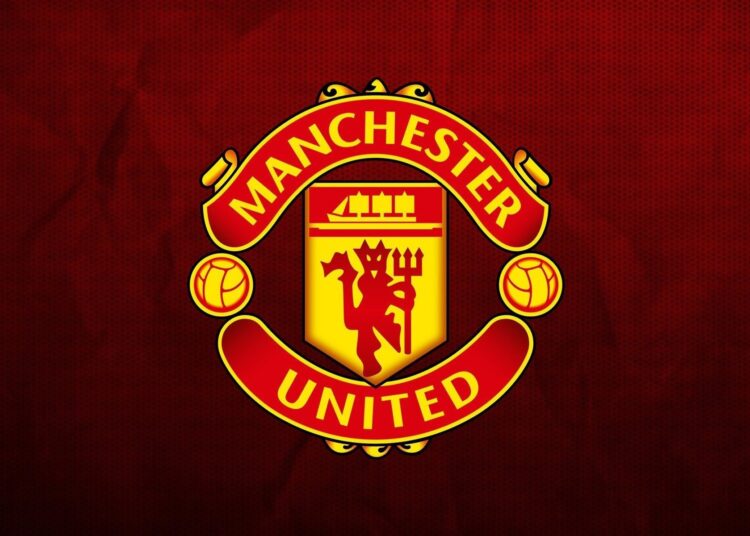Manchester United’s ongoing battle with financial fair play (FFP) regulations could take a devastating turn in the coming months, as reports suggest the club faces a potential £900 million loss due to a brutal termination clause that has emerged in the wake of their recent financial dealings. The clause, believed to be linked to the club’s substantial wage bill and ongoing player contracts, could lead to a massive financial hit if triggered, adding to the club’s already precarious situation under the microscope of FFP guidelines.

The Premier League giants have long been one of the richest clubs in the world, with revenue streams coming from matchday income, commercial deals, broadcasting rights, and sponsorships. However, as United has spent heavily in recent transfer windows to try and return to the pinnacle of English and European football, the club has come under increasing scrutiny for its financial practices. Recent moves, including high-profile player signings and large wage commitments, have raised concerns about whether Manchester United will be able to meet the increasingly strict FFP regulations that govern European football.
In what could prove to be a significant blow to the club’s ambitions on and off the pitch, a newly discovered termination clause in player contracts could prove disastrous, potentially costing the club up to £900 million—an amount that would severely damage the club’s financial standing, and risk their ability to comply with FFP rules. This predicament comes at a time when Manchester United is already dealing with considerable financial pressures, including mounting debt, the lingering uncertainty over the Glazer family’s ownership, and the burden of long-term player contracts that may not yield the returns initially hoped for.
The FFP Crisis: Background and Context
Financial Fair Play regulations were introduced by UEFA and the European footballing authorities to ensure that clubs do not spend beyond their means, thus protecting the integrity of competition and preventing clubs from accumulating unsustainable debts. FFP guidelines essentially require clubs to operate within their revenue, spending only as much as they earn in order to prevent financial instability in European football.
For the past few years, Manchester United has spent heavily in order to remain competitive in both the Premier League and Europe, bringing in top-tier talent such as Jadon Sancho, Cristiano Ronaldo (in his second stint), and Raphael Varane. The club has also committed large sums in wages to attract these players, in an attempt to return to the glory days of Sir Alex Ferguson’s reign. However, this expenditure has put United in a precarious position when it comes to FFP regulations, which limit how much clubs can spend relative to their earnings.
In the past, United has been able to get away with substantial spending, relying on its massive commercial success, a strong global brand, and its place in the Premier League’s elite. However, as other top clubs like Manchester City, Liverpool, and Chelsea have begun to evolve their financial models and adapt to FFP constraints, Manchester United’s financial management has come under greater scrutiny. The club’s inability to consistently qualify for the Champions League has also further hampered its revenue streams, especially in the context of hefty player wages and large transfer fees.
The Emergence of the Termination Clause
Reports have emerged that a “brutal termination clause” exists within several high-profile contracts at Manchester United, particularly concerning players signed in the post-Sir Alex Ferguson era. These contracts include a clause that, in the event of non-qualification for the Champions League or failure to meet FFP criteria, could trigger significant financial penalties. In particular, this clause reportedly covers up to 12 major contracts within the club, involving players who command some of the highest wages at Old Trafford.
The crux of the issue is that if Manchester United fails to meet FFP guidelines or misses out on lucrative competitions like the Champions League, certain player contracts could be prematurely terminated or renegotiated. This could result in a massive loss of revenue from commercial and broadcasting rights, as well as from potential sponsorship agreements tied to player performance and qualification for Europe’s top competition.
These termination clauses, when triggered, could cost the club an estimated £900 million over the next few seasons—an astronomical figure that could have disastrous consequences for the club’s long-term financial health. The clauses would not only require Manchester United to pay out large sums to the affected players but would also result in the loss of future revenue streams tied to those players’ commercial value and on-field performance. This would come at a time when the club is already under pressure to comply with FFP regulations and maintain a sustainable financial model.
The Financial Fallout: What Could £900 Million Mean for United?
The potential £900 million loss is catastrophic for Manchester United, both on and off the pitch. Here’s how such a financial blow could affect the club:
- FFP Violations and Potential Sanctions If Manchester United fails to comply with FFP regulations, the club could face a range of penalties, including fines, transfer bans, or even exclusion from European competitions. With the Champions League offering significant prize money and commercial opportunities, the loss of European football for one or more seasons would further damage the club’s finances. In turn, this would create a vicious cycle, where the club’s financial standing worsens, making it harder to comply with FFP in future years.
- Debt and Financial Stability Manchester United already carries a significant amount of debt, estimated at around £500 million in outstanding loans and interest payments. A £900 million loss due to terminated player contracts would stretch the club’s finances even further, and it could exacerbate the existing debt crisis. The club would need to either find new revenue streams or take on additional debt to cover the shortfall. However, increasing debt could reduce the club’s future spending power and negatively impact its ability to compete for top players in the transfer market.
- Wage Bill and Player Departures Manchester United has one of the highest wage bills in world football, partly due to the lucrative contracts handed to marquee signings in recent years. A termination clause would lead to the club paying out huge sums to players who are let go or renegotiated, further increasing the wage burden. Moreover, the financial strain could force Manchester United to offload some of its highest-earning players, such as Cristiano Ronaldo (if he were to return to the club) or Bruno Fernandes, in order to balance the books. Losing key players would impact the team’s competitive edge and could make it more difficult for United to challenge for top honors in domestic and European competitions.
- Ownership Uncertainty The Glazer family’s ownership of Manchester United remains under intense scrutiny, and with the financial situation deteriorating, the question of the club’s ownership becomes even more pressing. While the Glazers have shown no inclination to sell, the financial instability caused by the FFP issue could accelerate discussions around a potential sale. A change in ownership could lead to uncertainty and disruption at the club, further damaging its ability to plan for the future.
- Commercial Partnerships Manchester United has long been a lucrative commercial enterprise, with sponsorship deals from global brands such as Adidas, Chevrolet, and others. However, the emergence of FFP-related penalties and the potential for a financial crisis could damage the club’s brand value. Companies may become hesitant to renew or sign new deals if they perceive Manchester United to be in financial turmoil, further exacerbating the club’s issues.
Can Manchester United Avoid the Crisis?
In order to avoid the potential £900 million loss and FFP sanctions, Manchester United will need to act swiftly and decisively. The club’s board must work closely with manager Erik ten Hag to ensure that the team remains competitive, especially in domestic and European competitions. The club will also have to look at reducing its wage bill, possibly by offloading underperforming or high-earning players and focusing on youth development and strategic signings that will not break the bank.
Furthermore, Manchester United’s ownership situation needs to be resolved, whether that means securing long-term stability with the Glazers or finding new investors who can inject fresh capital into the club. With the right financial strategy and a bit of luck on the pitch, United may be able to navigate the looming FFP crisis. However, failure to address the situation could lead to long-term financial consequences that could cripple the club’s ambitions for years to come.
Conclusion: A Critical Crossroads for Manchester United
The potential £900 million loss due to FFP sanctions and the brutal termination clauses in player contracts represents one of the most significant challenges in Manchester United’s modern history. With their financial health and long-term success at risk, the club faces an urgent need to reassess its spending, player contracts, and overall financial strategy. The coming months will be critical in determining whether Manchester United can avoid the impending crisis, remain competitive on the pitch, and protect its status as one of the world’s most prestigious football clubs.














